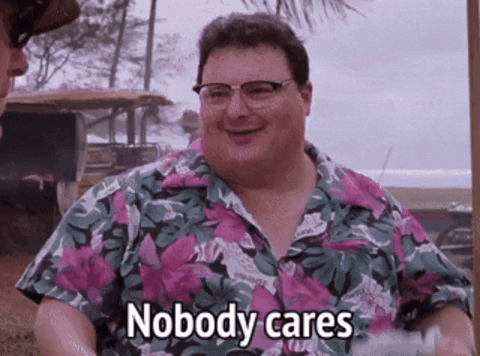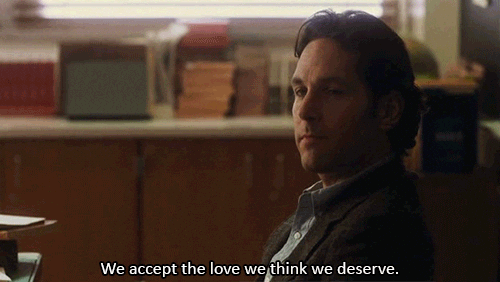The term “imposter syndrome” is pretty commonplace in mental health circles. At first glance, the concept is simple: it’s that super fun (not) anxiety you get when success knocks at your door. You know, when someone tells you “good job!” and what you somehow hear instead is “you’re a fraud and I see right through you!” Just a bout of low self esteem, right? Eh, not so much.
As it turns out, imposter syndrome is a lot more complex and nuanced than that.
In her book “The Secret Thought of Successful Women: Why Capable People Suffer from the Imposter Syndrome and How to Thrive in Spite of It” Dr. Valerie Young uncovered that when it comes to feelings of inadequacy, there isn’t one-size-fits-all. There are actually, five, count ’em, five, different types of imposter syndrome … ready to knock us down a peg in the blink of an eye.
While it might be overwhelming to discover your “competence type,” as Dr. Young calls them—or hey, maybe you’ll be like me and realize you’re a bit of all five—recognizing it can be really helpful for identifying what’s holding your mojo back. As they say, knowing is half the battle.
Something worth noting: Despite the (very long) title suggesting that this is primarily a female issue, the author herself notes that men also come up against imposter syndrome. In fact, though experts formerly believed it was experienced mostly by women, that has proven to not be the case. In fact, under some circumstances, men might be more likely to feel it. Long story short: Everyone can benefit from this information.
Let’s break down those five types:
1. The Perfectionist
Can the Type A, Overachiever, Micromanager Control Freaks please raise their hand? It’s OK, you’re welcome here.
For the Perfectionist, life is about setting excessively high, next-to-impossible standards for themselves. And then when inevitable failure comes along (again, impossible goals), that leaves the Perfectionist beating themselves up. Even the smallest error in a performance can suddenly morph into something huge. And from that point on, it’s the only thing that matters.
Perfectionism is its own brand of double-edged sword, as the fear of failure causes a hyperfocus on what might just be small details. And that can go one of two ways: overworking or procrastinating. Neither are very fun. And neither build confidence.
2. The Superwoman/man
Just listen to the lyrics of Encanto’s “Surface Pressure” and you’ll get a quick understanding of what this one means.
To be a Superwoman/man means feeling like you must excel in every role of your life. Having to be the best spouse, the best parent and the best worker—all at the same time. Cause, who needs a healthy work-life balance? Not Superhumans!
People pleasing and Superhumaning go hand in hand, because the need to impress and “do good” is of the utmost priority. A day in the life of a Superwoman/man might involve saying yes to every request, neglecting hobbies and juggling plates to the point of burnout. But, of course, this comes at a cost, because at the end of the day no matter how super we are, we are still undeniably human.
3. The Natural Genius
If at first you don’t succeed … then don’t bother trying again because clearly you don’t have a natural gift for it.
Those who believe in Natural Genius subscribe to the idea that if something isn’t easy, then it isn’t a natural talent. And therefore, if you must work hard at something, you must not be very good at it. People must be born talented or skilled. Setbacks aren’t just setbacks, they’re bona fide stop signs. This can make life very frustrating, as hobbies keep getting switched, a scroll through social media thwarts all hope and opportunities for growth are missed simply because they are challenging.
The Natural Genius type might look like a symptom of laziness at first glance, but really, it’s another form of judging ourselves harshly. With such ridiculously high expectations, our confidence has nowhere to go but down.
4. The Soloist
There’s no “I” in “TEAM,” but that’s OK because you don’t need a team anyway. You’ve got it all covered and don’t need any help. After all, needing others is clearly a sign of weakness … right?
Where independence is a valuable strength, the Soloist takes it to the nth degree. When you turn down assistance as a means to prove your worth and refuse to take any credit if you did receive any assistance … then you, my friend, might be a Soloist.
5. The Expert
To the Expert, there is no greater defeat than having to utter those three little words.
I. Don’t. Know.
Because to this type, self-worth is directly linked with having as much knowledge and as many skills as possible. Learning as you go? Nah. Feeling ashamed when you come upon a question you can’t answer? Yes, please.
For the Expert, life is about striving for more. More courses, more training, more certifications. And yet still feeling like you just don’t quite have a handle on it all yet. Often Experts are held back from going after jobs they are already well qualified for, simply because they’re convinced they haven’t learned enough.
How to Overcome Imposter Syndrome
If imposter syndrome comes in many shapes and sizes, then it’s no surprise there’s no be-all-end-all solution for it. A lot of it comes down to directly facing your fears and taking small steps (baby steps, even) toward a different outcome.
Here are a few ideas:
Celebrate any and all wins. Even the small ones.
Take a piece of paper and write it all out. Did you move at all today? Check. Brushed your teeth twice? Gold star for you. Writing out small successes might give you the validation kick that your little heart has been seeking.
Use your words.
Are you a perfectionist? Try the affirmation “Done is better than perfect.” A Soloist? How about “Receiving help allows me to be the best version of myself?” It’s a small gesture of self-love that really can help reframe our thoughts over time.
Stop scrolling.
If you find yourself looking at influencers, celebrities and teenagers showcasing their best moments and suddenly feeling inferior, then give yourself a digital detox. You might find a lot of extra time on your hands to put directly into building yourself up.
Seek the help of an expert.
This could be a mastermind group, a career coach or a therapist. Or, it could be delegating a certain task to a professional, such as hiring a housekeeper or accountant. This is a great way to ask for help (you’re welcome, Soloists) in a way that’s constructive.
At the end of the day, it’s understandable that many of us feel like frauds. But this feeling can be alleviated through a little honesty, some self-care and allowing ourselves to be both flawed and deserving all at the same time.If you’re interested in taking a quiz to further dive into which type best fits you, you can check that out here.










































